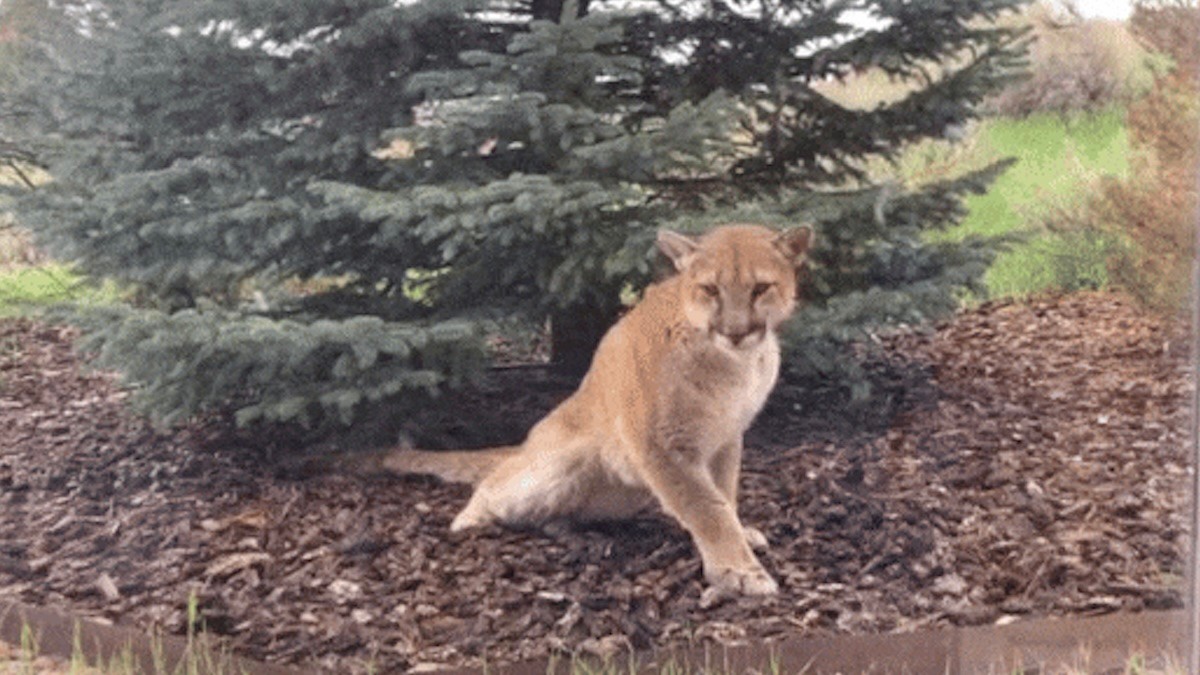Researchers Identify Fatal ‘Staggering Disease’ in Colorado Mountain Lion

On May 12, 2023, Colorado Parks and Wildlife (CPW) received a report of a young female mountain lion with signs of severe hind leg ataxia and paresis in a residential area of Douglas County. The cat was experiencing limited mobility due to an inability to bear weight on its hind end. It was dragging itself with its front legs and was responsive to stimuli. Wildlife officers tranquilized the cat and then euthanized it with a gunshot to the chest in order to preserve neurologic tissue.
The cat was then sent to Colorado State University College of Veterinary Medicine and Biomedical Sciences for a postmortem investigation, including necropsy, histopathology, immunohistochemistry, molecular diagnostics, and metatranscriptome sequencing to investigate potential causes of the disease.
According to the study published on Emerging Infectious Diseases, researchers identified a rustrela virus variant in the mountain lion’s nervous tissue samples. The virus, RusV (Rubivirus strelense), was recently identified as the cause of staggering disease, a disease documented in domestic cats since the 1970s.
Sweden, Austria, and Germany are known hotspots for staggering disease in domestic cats. A 2023 Nature article states, “The most prototypic clinical sign of ‘staggering disease’ is hind leg ataxia with a generally increased muscle tone resulting in a staggering gait. In addition, a broad range of other neurologic signs may occur, including the inability to retract the claws, hyperaesthesia and occasionally tremors and seizures. Behavioral alterations include enhanced vocalization, depression, becoming more affectionate, and rarely aggression.”
However, the study's results demonstrated the presence of a RusV variant in North America that is somewhat genetically divergent from those previously described in Europe. Researchers hypothesize that rodents could be a host for RusV, but further study is needed to confirm or deny this.
According to a CPW press release, Dr. Karen Fox, the study's lead author and former CPW wildlife pathologist, said the diagnosis of staggering disease was challenging. The final confirmation was only possible through collaboration with researchers at the Friedrich-Leoffler-Institut in Germany. Staggering disease has been closely studied in Germany for decades as it has been spread through domestic cats and other mammalian species, including equids, mustelids, rodents, and marsupials.
Fox emphasized that scientists don’t yet know how widespread the virus is in either domestic cats or wildlife populations. “Now that we know what we’re looking for, it should be easier to find new cases if they are out there,” Fox said. “With continued collaboration, we plan to learn what we can from our colleagues in Europe while we continue to look for new cases of staggering disease here in Colorado.”
While neurologic diseases are highly concerning, it’s hard to discern if this will become a more robust threat for mountain lions and other species until more research is conducted. However, if you see any animal struggling to walk, dragging its hind end, or behaving erratically, don’t hesitate to contact your local wildlife officials.
Feature image via CDC.






